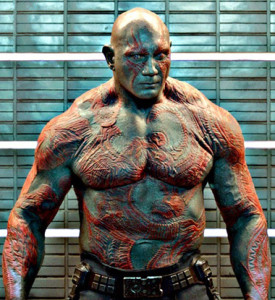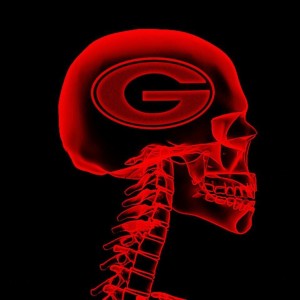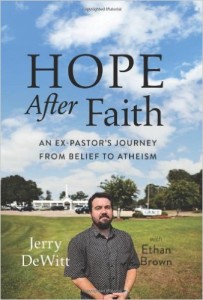Famous tennis instructor Dennis Van der Meer has often said that a player's IQ is cut in half as soon as he or she steps onto the court and the games begin. His quip translates to mean in the spur of the moment during heated competition, people tend to make ill-advised, emotional decisions as opposed to rational and reasonable ones. Apparently, that would also be an appropriate way to describe many Georgia Bulldog fans, especially during football season. Fans who are calling for a coaching change have let emotion shape their comments, which often lack logic and intelligent thought. People are called "fans" for a reason. It's short for fanatic. These "fair-weather" fans have unrealistic expectations for the present, and a very myopic vision for the future. The truth of the matter is that Mark Richt is an excellent football coach. However, his team has already lost twice this season. Some of our fair-weather fans (apparently those few suffering from temporary insanity) have called for Mark Richt to be fired. To fire Coach Richt at the end of this season wouldn't just be dumb, it would be one of the most stupid decisions in school history -- and that even includes Jake Scott's legendary death-defying ride over Stegeman Coliseum on a motorcycle. Coach Richt is currently one of the best in the business, and when he finally retires, he will ultimately be considered one of the greatest college football coaches of all time. The fair-weather Georgia fans currently calling for his ouster may be wondering -- how can anyone make such an outlandish claim, … [Read more...]
Why evolution is probably false
I've never wanted nor pretended to be a biologist. I prefer to blame this possible character flaw on the fact I never liked dissecting animals, or the smell of formaldehyde. My approach to science has always been "need to know" -- meaning if I decide that I need to know something, I'll put a little effort into figuring out how it works. In the years since graduating from college I have certainly learned how to make children and grandchildren. For the longest time, I felt like that was enough knowledge of biology to satisfy my curiosity; I knew how to do my part to perpetuate of the species, and that was all I thought I needed to know. When these evangelists for atheism like Richard Dawkins began using their belief in evolution as justification for attacking belief in the existence of a creator God, I decided it was probably time for me to learn a bit more about this theory used to justify their claims of having eliminated the possibility that a supernatural God could exist. The Business Dictionary provides an excellent definition that I like which describes information as "Data that is (1) accurate and timely, (2) specific and organized for a purpose, (3) presented within a context that gives it meaning and relevance, and (4) can lead to an increase in understanding and decrease in uncertainty." As a former professional software developer, that definition seems both useful and apropos. Computers accept raw data as input. Software applications inside the computer process that raw data to convert it into useful information. The key phrase in the definition … [Read more...]
Fair-weather fans
I graduated from the University of Georgia in 1983. I am a Bulldog who bleeds red and black. In contrast, my dad never had any sort of solid connection to any particular school or football program. Rocky didn't go to college. He was what I refer to as a "fair-weather" fan, meaning that he'd ride the bandwagon when things were going well, but at the first signs of trouble he'd be ready to hang the captain from the main mast and jump ship . While I was in school, a Bulldog banner usually welcomed me home every Thanksgiving and remained on display until the Christmas decorations went up. But those were the glory days of Herschel Walker, Erk Russell and the Junkyard Dawgs. Georgia won just about every regular season game during those three years, so Rocky never had time to switch his allegiance to another team before the season was over. However, once Vince Dooley retired, the football program went through a long period of decline under the leadership of Ray Goff and Jim Donnan. I still remember a small plane circling over Sanford Stadium at every home game, pulling a banner behind it that read, "Fire Ray Goof!" and wondering if Rocky had paid for it. Being only a fair-weather fan, Rocky loved to aggravate me if UGA was struggling when my family and I visited for the holidays. Sometimes I would even find a Yellow Jacket banner flying over my parking space when we visited for Christmas, if Tech was having a better season than my Dawgs, or managed to beat us that year. If Rocky hadn't died in 1997, he probably have called this week to play "Rocky Top" to me over … [Read more...]
Devon Gales and the Bulldog Nation
Life is more important than football. Most people play sports simply because they love the competition. I certainly do. For example, if you want to see me run, you basically have two options: either put a gun to my head, or a tennis racquet in my hand. Even when the outcome of the contest has been determined, true competitors never stop playing hard. Naturally, I'd prefer that you chose the tennis racquet over the gun. I will run to win a point, or if a very large animal is chasing me, but jogging and pleasure are mutually exclusive ideas, in my opinion. Of course, everybody knows that Georgia plays Alabama in Sanford Stadium this coming Saturday. But we can talk about that contest later, after the game has been played. Today we need to talk about what happened last Saturday, the tragic accident that occurred in the game against Southern University. The halftime show by Southern's renowned marching band was supposed to be the major highlight of the game. And the band was terrific. They put on an incredible show for the crowd in Sanford stadium. Heck, they were entertaining people on their way inside the stadium. And somebody forgot to tell Southern's football team they weren't supposed to play hard and make the game competitive. At the intermission the score was only 20-6, in favor of Georgia. The previously unstoppable Bulldog running game had only gained thirty-five yards prior to halftime. To their credit, Southern's players never stopped trying to execute their game plan, refusing to play the role of a "cupcake" opponent, even late in … [Read more...]




